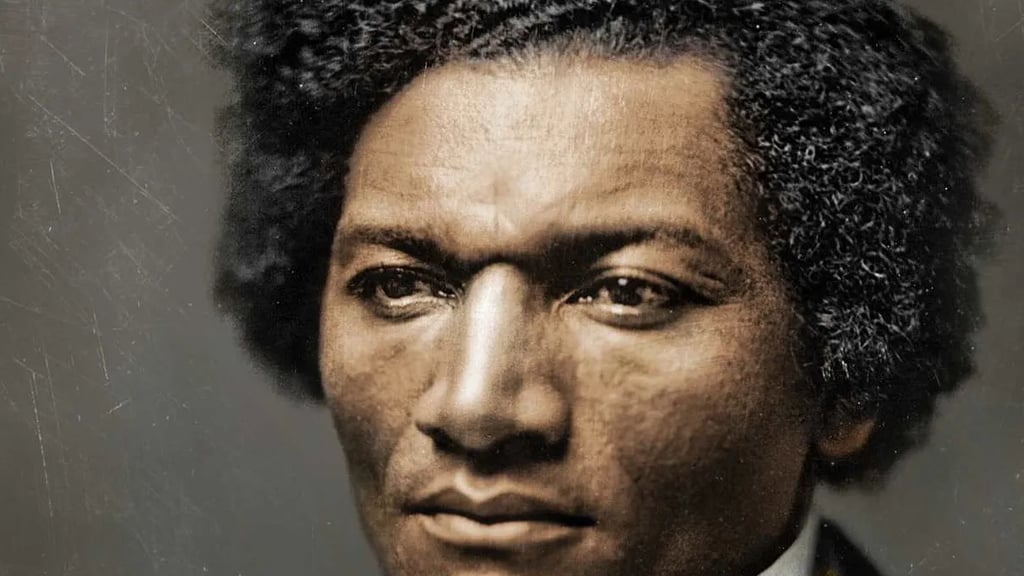
Communicating Throughout History - Frederick Douglass | BHM
Historical communication lessons that are relevant today
AFRICAN AMERICAN COMMUNICATORS
Thomas Y. Lynch
2/8/20252 min read


The Sage of Cedar Hill, The Lion of Anacostia and Old Man Eloquent were just a few of Frederick Douglass’s nick names (I love them all). The man lived a purposeful life he celebrated his birthday February 14th and the decision to have Black History Month in that month was rumored to be in small part a tribute for him through Carter G. Woodson.
Old Man Eloquent was a former slave who became a leading abolitionist, orator, writer, and statesman. Born in 1818, he escaped to freedom and dedicated his life to fighting for the rights of African Americans and advocating for social justice. Douglass’s writings, including his autobiographies and speeches, are powerful examples of effective communication that still resonate today. Let’s explore three key attributes of his writing style that can enhance our own communication practices.
The Personal Narrative
One of the standout qualities of Douglass's writing is his use of personal narrative. He didn’t just write about the abstract concepts of freedom and equality; he shared his own experiences of enslavement, bringing to light the brutal realities faced by countless others. This authenticity creates a strong emotional connection with readers, drawing them into his world. In today's communication, whether in speeches, essays, or social media, sharing personal stories can make messages more relatable and impactful. Vulnerability breeds connection, and Douglass masterfully utilized this to advocate for change.
Persuasive Rhetoric
Douglass was a master of rhetoric, employing persuasive techniques that appealed to both logic and emotion. He understood that to change hearts and minds, he needed to engage his audience on multiple levels. His speeches often included powerful metaphors and vivid imagery, making complex ideas accessible and most of all - memorable. In modern communication, we can take a cue from Douglass by blending facts with emotional appeal, using storytelling and vivid language to make our messages resonate deeply. Whether you’re crafting a speech or writing an article, don't underestimate the power of rhetoric to persuade and inspire.
Call to Action
Frederick Douglass's writing was not just about raising awareness; it was about urging his readers to take action. He believed in the power of collective effort to bring about social change and often concluded his speeches with a strong call to action. Today, effective communicators should empower their audiences, providing clear steps for engagement and encouraging them to participate in the conversation. Douglass’s legacy teaches us that writing can be a powerful tool for mobilization, and it’s our responsibility to inspire others to join us in the pursuit of justice and equity.
conclusion
Eventhough his life ended in 1895The writings of Frederick Douglass remain significant today, standing as a beacon of hope and resilience in the face of adversity. His ability to weave personal narratives with persuasive rhetoric and actionable insights has shaped America profoundly and continues to inspire new generations of writers and activists.
I will end this blog with one of my favorite quotes from him: "No, I make no pretension to patriotism. So long as my voice can be heard on this or the other side of the Atlantic, I will hold up America to the lighting scorn of moral indignation. In doing this, I shall feel myself discharging the duty of a true patriot; for he is a lover of his country who rebukes and does not excuse its sins." ~ "Love of God, Love of Man, Love of Country," speech at Market Hall, New York City, October 22, 1847
For those looking to delve deeper into Douglass’s life and works, here are some helpful online resources:
"Thoughts for all time" - Article
"Frederick Douglass" - Article
You can also read "The Life and Times of Frederick Douglass"
Thomas Y. Lynch
Frederick Douglass

“How well we communicate is not determined by how well we say things but how well we are understood.”












